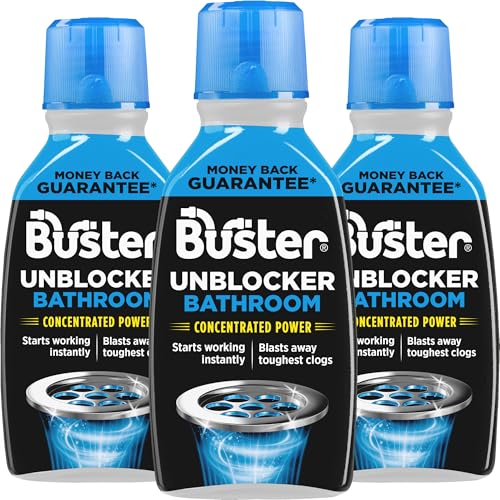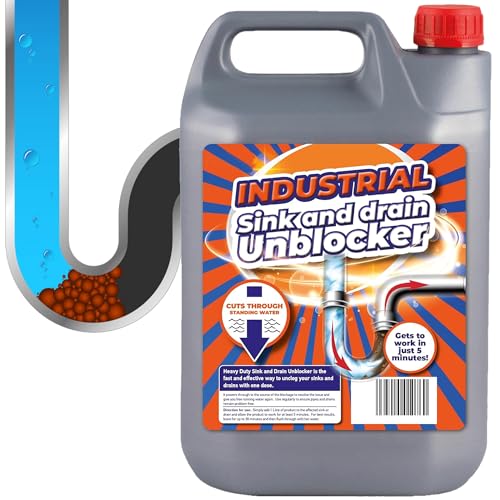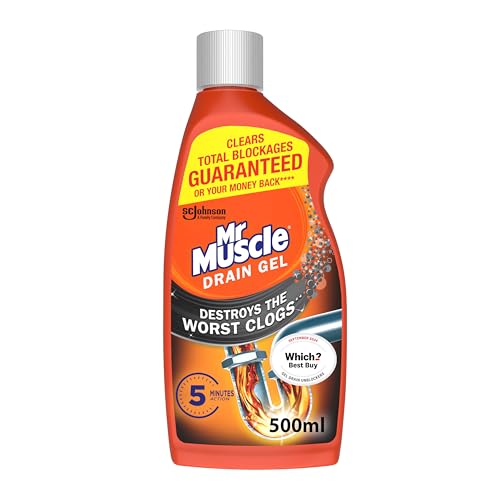Introduction to Drain Cleaners: Understanding What They Are and How They Work
What Are Drain Cleaners?
Drain cleaners are specialized chemical solutions designed to clear clogs from your plumbing. They work by breaking down grease, hair, soap scum, and other debris that can accumulate in your pipes over time. When faced with a sluggish or completely blocked drain, the right drain cleaner can restore normal flow quickly and efficiently, making life easier for homeowners and tenants alike.
How Do They Work?
The way drain cleaners operate can vary depending on their chemical composition. Most commonly, drain cleaners contain either caustic agents, acid-based agents, or enzymes. Caustic cleaners generate heat upon contact with water, causing debris to dissolve. Acid-based cleaners create a chemical reaction that effectively eats away at clogs. Enzyme-based products, on the other hand, use natural bacteria to break down organic materials slowly. Understanding this mechanism is key to selecting the right option for your needs.
Types of Drain Cleaners: Find the Right Solution for Your Clogged Drains
Chemical Drain Cleaners
Chemical drain cleaners are readily available and can be very effective against severe blockages. They come in liquid or granular form and can be poured directly into the drain. While they can work wonders, it’s crucial to follow the manufacturer’s instructions for safe use and to be aware of the potential for damage to older plumbing systems.
Biological Drain Cleaners
If you’re looking for a less harsh option, biological drain cleaners might be the answer. These products contain enzymes and bacteria that break down organic matter, making them safer for both your plumbing and the environment. They work best as a preventative measure or for minor clogs, taking longer to show results compared to traditional chemicals.
Homemade Drain Cleaners
For a more natural alternative, some prefer homemade drain cleaners, typically made from common household items like baking soda and vinegar. This blend can help clear minor clogs and keep your drains fresh without the use of harsh chemicals, making it an excellent option for those concerned about safety and environmental impact.
How to Choose a Safe and Effective Drain Cleaner for Your Home
Assess the Nature of the Clog
Determining the nature of your clog is the first step in choosing a drain cleaner. If you know that hair or soap residue is the primary culprit, enzyme-based cleaners are generally safe and effective. For grease build-up, a caustic chemical cleaner may be needed. Understanding the specific problem helps narrow down your options significantly.
Consider Your Plumbing System
Another essential factor is the type of plumbing in your home. Older pipes or those made of certain materials, like PVC, can be more susceptible to damage from harsh chemicals. If you’re using a more aggressive drain cleaner, check whether it’s safe for your plumbing type to avoid unnecessary repairs down the line.
Evaluate Environmental Impact
As we become more conscious of our impact on the environment, many of us prefer to select products that are eco-friendly. Look for biodegradable options or those that promise minimal effect on water quality when they break down. Doing this not only benefits the planet but can also promote healthier drainage systems.
Step-by-Step Guide: How to Use Drain Cleaners Effectively and Safely
Preparing for Drain Cleaning
Before using any drain cleaner, there are a few preparations to make. Start by ensuring the area around your sink is well-ventilated and that you’re wearing gloves and eye protection. If you’re using a chemical cleaner, read the label carefully to follow instructions precisely for the best results.
Proper Application of Drain Cleaner
When applying the drain cleaner, pour it slowly down the drain, avoiding spillage onto surfaces. Allow it to work for the recommended time mentioned on the product label. Time is crucial, as both too little and too much time can yield unsatisfactory results.
Aftercare and Maintenance
Once the cleaner has done its job, flush the drain with hot water to help clear any remnants of the cleaner. This step is especially important for chemical cleaners, which should not be left to linger in pipes. Regular cleaning can also prevent the recurrence of clogs.
Preventive Measures: Tips to Keep Your Drains Flowing Smoothly
Regular Maintenance
One of the best strategies to avoid clogged drains is regular maintenance. This could mean routinely using enzyme cleaners to break down build-up before it becomes a significant problem. It’s often easier to prevent clogs rather than deal with them once they’ve developed.
Proper Disposal Practices
Being mindful of what goes down your drains contributes significantly to maintaining clear pipes. Avoid flushing anything that could create a blockage, such as excess food, grease, or sanitary products. Simple habits can save you from headaches down the road.
Educate Family Members
Lastly, educating everyone in the household about proper drain care can make a big difference. Teach family members what should and shouldn’t go down the sink, and encourage them to report any slow drains promptly. This proactive approach can help you catch potential problems early.






















